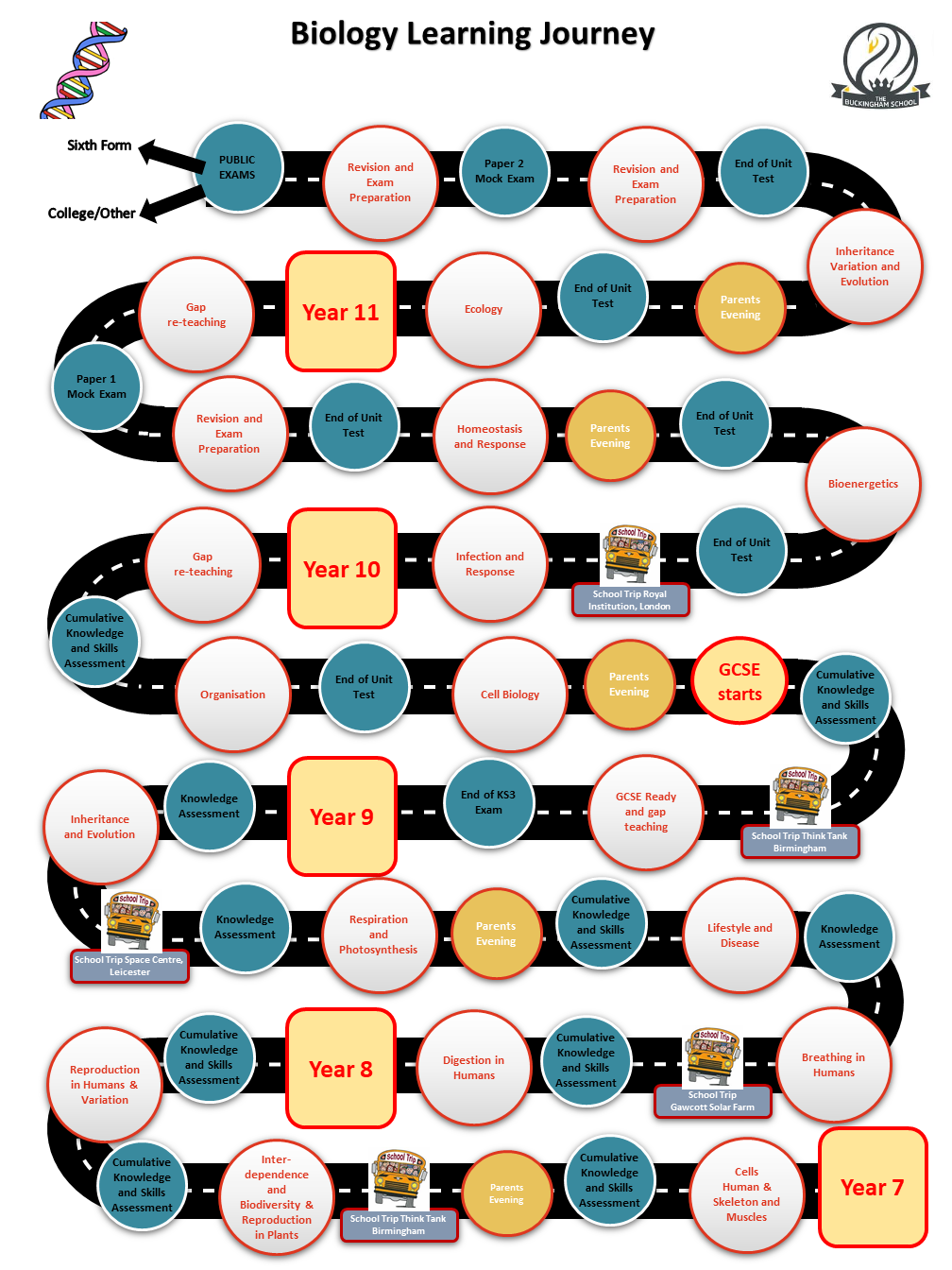Science
Science Department Curriculum Intent
In Science we aim to create a classroom culture where students feel safe to ask questions, confident to explore, and inspired to connect scientific ideas to the world around them. Through practical investigation and critical thinking, we challenge learners to develop their understanding of key concepts, while nurturing the emotional and social skills that allow them to thrive. Ultimately, we want all our student to succeed and achieve their full potential.
Kindness underpins our approach: we support each other’s learning, celebrate mistakes as steps toward growth, and show empathy in our scientific inquiries - especially when studying life and the environment.
Key Stage 3 – Being Engaged: Learning with Kindness and Curiosity
At Key Stage 3, our science curriculum is designed to ignite curiosity and foster a lifelong passion for discovery. We promote curiosity by encouraging students to wonder boldly, explore with purpose, and pursue answers with perseverance and imagination.
- Respect is at the heart of our collaborative work - for each other, for diverse viewpoints, and for the natural world we are studying.
- Through reflection, students evaluate their own learning and thinking, and begin to see themselves as part of a wider scientific journey.
- With responsibility, we help learners understand the impact of science on society, equipping them to make informed decisions and take thoughtful action as global citizens.
By the end of KS3, students have strong foundations for future learning - they are kind, curious, and conscientious learners who are ready to meet the challenges of the future with both knowledge and heart.
Key Stage 4 – Being Independent: Taking Responsibility for Learning and Growth
At Key Stage 4, our science curriculum empowers students to become independent, by developing resilience, self-motivation, and the confidence to explore complex ideas critically and creatively. Through structured inquiry and problem-solving, learners are supported in building their scientific understanding and applying it to real-world contexts with purpose and integrity.
- We encourage every learner to take responsibility for their education - recognising that ownership of learning is the first step toward personal and academic growth.
- Respect underpins our learning environment: we value each individual’s contribution, uphold high expectations of behaviour and effort, and foster meaningful collaboration. We also develop respect for science itself - for its methods, its impact, and the ethical considerations it demands.
- We prioritise reflection as an essential part of the learning process. Through honest self-evaluation and feedback, students are encouraged to think deeply about how they learn, why science matters, and how their growing knowledge can shape their futures.
By the end of KS4, students are not only prepared for academic success but to become informed, responsible, and curious citizens, ready to make a positive difference in the world.
Key Stage 5 - Exemplary: Habitually showing Integrity, Reflection, Responsibility and Respect
At Key Stage 5, our science curriculum aspires to develop ‘exemplary learners’ by setting high expectations for independence and rigour, not as a finish line, but as a standard that students internalise and uphold. Scientific excellence is paired with ethical awareness, so students not only know how to explore the world, but they also understand why it matters, and how their work can affect others.
- We encourage thoughtful reflection as a route to growth – enabling students to evaluate evidence critically, refine their thinking, and consider the broader implications of their learning.
- We expect learners to take full responsibility for their progress, owning both the effort and the mindset needed to succeed. They are challenged to lead their own learning while contributing meaningfully to the scientific community around them.
- Respect is cultivated through collaborative learning, open-minded debate, and the appreciation of different perspectives, cultures, and identities – all essential in the diverse world of modern science.
By the end of KS5, our students are not only prepared for the next steps in their academic and professional lives, but also for a future where character and competence go hand in hand and where young people lead by example, and with purpose.
Science Department Ethos
Our science department is a community where responsibility, respect, reflection, and kindness guide not only how we learn but how we grow together.
We uphold responsibility by taking ownership of our actions, our learning, and the way we contribute to both scientific discovery and a just society. We approach every question with integrity, curiosity, and a commitment to doing what is right.
We show respect by listening carefully, valuing different viewpoints, and honouring the collaborative nature of scientific progress. Everyone's voice matters, and through mutual respect, we create a space where ideas can flourish.
We practice reflection to deepen understanding and refine our thinking. We ask not just "what did I learn?" but also "how can I improve?" and "how can my learning serve the world?"
And above all, we lead with kindness. We support each other through challenges, celebrate our successes with generosity, and treat every person - and living system we study - with care and compassion.
Together, we build a culture where science is not just learned, but lived - with heart and with purpose.
Click on the links below for Biology
careers linked to biology
- General Practitioner (GP): Provides primary healthcare and treats a variety of conditions.
- Surgeon: Performs operations to treat injuries, diseases, and deformities.
- Nurse: Provides patient care and supports medical teams.
- Midwife: Assists with childbirth and prenatal care.
- Radiologist: Uses imaging techniques to diagnose and treat diseases.
- Anaesthetist: Administers anaesthesia and manages pain during surgeries.
- Environmental Scientist: Works to protect natural resources and ecosystems.
- Biologist: Researches living organisms and their environments.
- Geneticist: Focuses on heredity and DNA.
- Medical Scientist: Develops treatments and studies diseases.
- Epidemiologist: Investigates disease patterns and prevention.
- Biophysicist: Combines biology and physics to study living systems.
- Biology Teacher: Teaches Biology at various educational levels, from KS3 to University.
assessment
In Biology we have a mixture of activities that allow us to assess students’ learning. These include assessment throughout the lessons, with discussions, quizzes and exam questions. There will be occasions where students self-assess their work, and others where peer-assessment is conducted. Both will help students understand their weaknesses and strengths, and how to move forward.
We also have teacher-assessed tasks, which include six-mark questions, knowledge assessment quizzes, and end of unit tests, where knowledge, skills and application in new context are tested. In years 10 and 11, students also complete mock exams.
Further reading
Key Stage 3
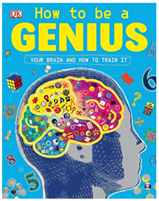
How to Be a Genius by DK Publishing
Explore the brain and body through puzzles, challenges, and quirky facts. A great pick if you love interactive learning.
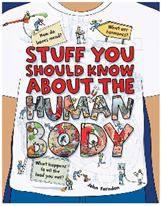
The Stuff You Should Know by John Farndon
Covers everything from cells and DNA to evolution and ecosystems. Written in a fun, accessible style with illustrations and diagrams.
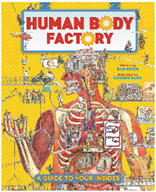
The Human Body Factory by Dan Green
Imagine your body as a bustling factory! This book explains organs and systems with humour and cartoon-style illustrations.
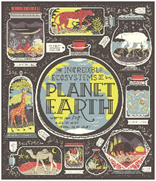
The Incredible Ecosystems of Planet Earth by Rachel Ignotofsky
A beautifully illustrated guide to biodiversity and habitats. Combines art and science to celebrate the natural world.
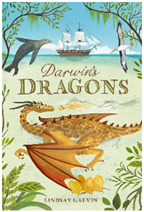
Darwin’s Dragons by Lindsay Galvin
A fictional adventure inspired by Darwin’s voyage. Blends historical science with fantasy - great for cross-curricular reading.
GCSE
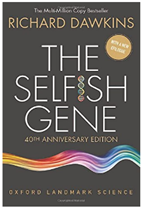
The Selfish Gene by Richard Dawkins
A groundbreaking look at evolution and genetics, introducing the idea of genes as the drivers of natural selection. Accessible and thought-provoking, especially if you are interested in evolutionary biology.
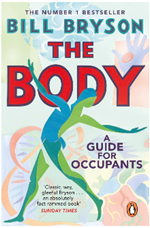
The Body: A Guide for Occupants by Bill Bryson
A witty and informative tour of the human body, packed with surprising facts and engaging storytelling. Great for students who enjoy science with a side of humour.
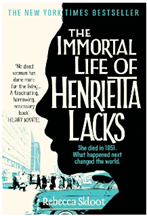
The Immortal Life of Henrietta Lacks by Rebecca Skloot
The true story of the woman behind the HeLa cells - used in countless scientific breakthroughs. Combines biology, ethics, and history in a gripping narrative.
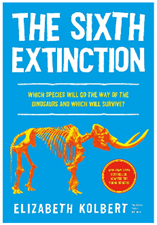
The Sixth Extinction by Elizabeth Kolbert
Investigates the ongoing mass extinction caused by human activity. Blends ecology, evolution, and environmental science in a compelling way.
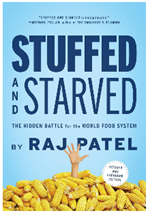
Stuffed and Starved by Raj Patel
Explores the global food system and its biological, environmental, and social impacts. A great cross-curricular read linking biology with geography and ethics.
LEARNING JOURNEY
REVISION RESOURCES
Key Stage 3
Cells and Organisation Knowledge Organiser
Ecosystems Fact Sheet
Health and Immunisation Key Revision Facts
Photosynthesis Knowledge Organiser
Respiration Knowledge Organiser
Skeleton and Muscular Systems Key Revision Facts
Combined Science
AQA Bioenergetics Knowledge Organiser
AQA Cell Biology Knowledge Organiser
AQA Ecology Knowledge Organiser
AQA Homeostasis and Response Knowledge Organiser
AQA Infection and Response Knowledge Organiser
AQA Inheritance, Variation and Evolution Knowledge Organiser
AQA Organisation Knowledge Organiser
Separate Sciences
AQA Bioenergetics Knowledge Organiser
AQA Cell Biology Knowledge Organiser
AQA Ecology Knowledge Organiser
AQA Homeostasis and Response Knowledge Organiser
AQA Infection and Response Knowledge Organiser
AQA Inheritance, Variation and Evolution Knowledge Organiser
AQA Organisation Knowledge Organiser
Click on the links below for Chemistry
Careers linked to Chemistry
Accordion content
assessment
Accordion content
Further reading
Learning Journey
Accordion content
Revision resources
Key Stage 3
Cells and Organisation Knowledge Organiser
Ecosystems Fact Sheet
Health and Immunisation Key Revision Facts
Photosynthesis Knowledge Organiser
Respiration Knowledge Organiser
Skeleton and Muscular Systems Key Revision Facts
Combined Science
AQA Bioenergetics Knowledge Organiser
AQA Cell Biology Knowledge Organiser
AQA Ecology Knowledge Organiser
AQA Homeostasis and Response Knowledge Organiser
AQA Infection and Response Knowledge Organiser
AQA Inheritance, Variation and Evolution Knowledge Organiser
AQA Organisation Knowledge Organiser
Separate Sciences
AQA Bioenergetics Knowledge Organiser
AQA Cell Biology Knowledge Organiser
AQA Ecology Knowledge Organiser
AQA Homeostasis and Response Knowledge Organiser
AQA Infection and Response Knowledge Organiser
AQA Inheritance, Variation and Evolution Knowledge Organiser
AQA Organisation Knowledge Organiser
Click on the links below for Physics
careers linked to Physics
Accordion content
assessment
Accordion content
Further reading
Accordion content
LEARNING JOURNEY
Accordion content
REVISION RESOURCES
Key Stage 3
Cells and Organisation Knowledge Organiser
Ecosystems Fact Sheet
Health and Immunisation Key Revision Facts
Photosynthesis Knowledge Organiser
Respiration Knowledge Organiser
Skeleton and Muscular Systems Key Revision Facts
Combined Science
AQA Bioenergetics Knowledge Organiser
AQA Cell Biology Knowledge Organiser
AQA Ecology Knowledge Organiser
AQA Homeostasis and Response Knowledge Organiser
AQA Infection and Response Knowledge Organiser
AQA Inheritance, Variation and Evolution Knowledge Organiser
AQA Organisation Knowledge Organiser
Separate Sciences
AQA Bioenergetics Knowledge Organiser
AQA Cell Biology Knowledge Organiser
AQA Ecology Knowledge Organiser
AQA Homeostasis and Response Knowledge Organiser
AQA Infection and Response Knowledge Organiser
AQA Inheritance, Variation and Evolution Knowledge Organiser
AQA Organisation Knowledge Organiser

